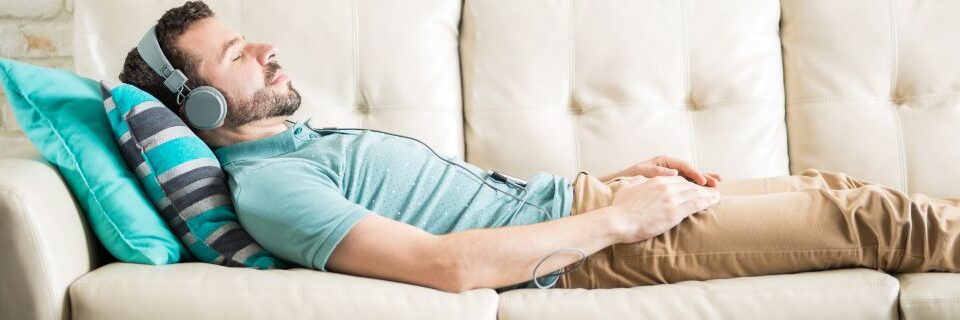
Are You Getting Enough Sleep? The Answer Might Surprise You

Gain Insight Into Yourself with Hypnotherapy
Table of Contents
We spend about a third of our lifetime sleeping, but for many people, sleep is elusive. If you have a sleep disorder, you might find it hard to fall asleep or stay asleep. You might wake frequently at night or too early in the morning, or you might toss and turn all night, waking up feeling unrefreshed or fatigued in the morning. The lack of sleep can leave you prone to a variety of other issues, ranging from poor focus and concentration to weight gain and high blood pressure. Tackle your sleep problems head-on and learn how to diagnose and overcome your sleep disorders for better sleep tonight.
How Do You Diagnose Sleep Disorders?
If you are having a hard time getting the rest you need, your doctor might recommend an evaluation to determine if you have a sleep disorder. This evaluation will typically begin with a sleep diary. A sleep diary is a daily record that should include all sleep-related information, including the time you went to bed and woke up, the time you fell asleep, any night wakings, information about daytime naps, and any other pertinent information. If you have a sleeping partner, your doctor might also ask them about your sleeping habits to better understand the full extent of your sleeping difficulties in both your life and theirs. This can include issues regarding sleep disruptions, apnea episodes, abnormal sleep behaviors, and sleep hallucinations.
Your doctor may also ask about if and how much caffeine, alcohol, nicotine, and other medications or substances you use and ask questions about your personal and family health history.
For many people, this may be sufficient to identify certain sleep disorders, including what are the two most common sleep disorders: insomnia and obstructive sleep apnea. However, some people may need additional tests, such as a sleep study. Sleep studies are performed in a sleep lab and can provide more in-depth information about your airflow, brain activity, and other vital signs as you sleep.
If you have a sleep disorder, hypnosis can be a good option. Hypnosis for sleep anxiety offers powerful relief and relaxation to help you get the sleep you need for good health and wellness.
How Do You Treat Sleep Disorders?
Diagnosing a sleep disorder is just the beginning. Once you have been diagnosed with a sleep disorder, your first question may be, “Can sleep disorders be cured?” Treating your disorder will vary based on your needs, but with the right therapy, lifestyle changes and sleep hypnosis audio, most people will experience significant improvement and better quality of sleep.
If a medical condition is causing or contributing to your lack of sleep, treating the issue can help improve or even resolve your sleeping problems. Lifestyle changes can also be especially helpful, either on their own or in conjunction with other therapies. These can include:
- Stress reduction
- A regular sleeping schedule
- Limited caffeine intake
- Decreased reliance on alcohol and nicotine
- Regular exercise
Maintaining a healthy weight and eating a balanced diet can also be beneficial for your healthy sleep routine, but it might not be enough. Hypnosis for sleep problems can be just what the doctor ordered for helping you implement those changes. With our best sleep hypnosis, you can develop effective new sleep habits that work for you. When you learn to manage your sleep anxiety with hypnosis, you can transform not only your nights but your days, too.
What Causes Sleeping Disorder?
Sleep disorders can stem from a number of causes, some of which may be related to lifestyle factors while others may be related to aging. Others may be linked to health conditions.
Common issues underlying sleep problems include:
- Irregular sleep schedules
- Shift work
- Caffeine intake
- Heart disease
- Chronic pain
- Depression
- Anxiety
- Lung problems
- Nerve disorders
Genetic factors and various medications may also play a role in the onset or severity of sleep disorders.
Once you understand what is behind your sleeping problem and its origins, you can begin learning the best treatment options. This may require a multi-pronged approach that focuses not just on the symptoms or your sleep but on your daytime activities, too. Using hypnosis for sleep can transform your focus with guided imagery, mindfulness, and other tools to help you incorporate new habits, new beliefs, and new behaviors so that you can get the rest you need.
Sleep is essential for good health, and if you are not getting the sleep you need, your physical and emotional wellbeing could be at risk. UpNow.com’s self-hypnosis for sleep puts the power of sleep in your hands. You can use it in the privacy of your home to calm your thoughts and relax your mind as you learn to sleep again one day at a time. Visit us today at UpNow.com to download our best sleep hypnosis app or to learn more.
UpNow Health only uses high-quality sources, including peer-reviewed articles, to support the facts within our articles. All our articles are reviewed by experts to ensure that our content is accurate, helpful, and trustworthy.
1. Abad, Vivien C, and Christian Guilleminault. “Diagnosis and Treatment of Sleep Disorders: A Brief Review for Clinicians.” Dialogues in Clinical Neuroscience, vol. 5, no. 4, 2003, pp. 371–88, www.ncbi.nlm.nih.gov/pmc/articles/PMC3181779/
2. MedlinePlus. “Sleep Disorders.” Medlineplus.gov, National Library of Medicine, 2018, https://medlineplus.gov/sleepdisorders.html
3. Roth, T. “New Developments for Treating Sleep Disorders.” The Journal of Clinical Psychiatry, vol. 62 Suppl 10, 2001, pp. 3–4, https://pubmed.ncbi.nlm.nih.gov/11388588/












